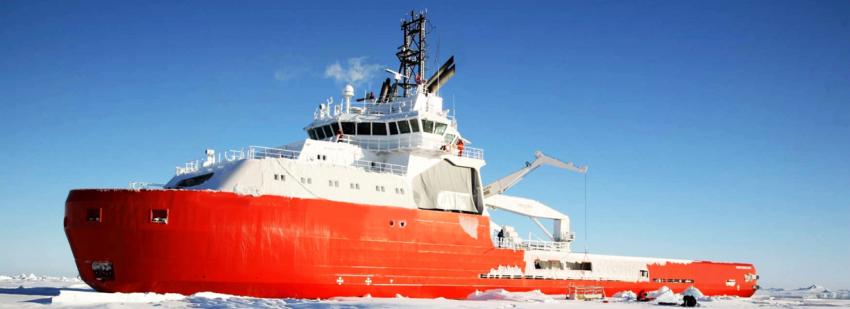Secondary starting systems
Offshore platforms, drilling rigs, ships and mines are such dangerous environments that they all have emergency systems in place to fight fires, provide emergency lighting and pump air. But these emergency systems usually share one common characteristic: they use an electric starter. Secondary starting systems are vital to the continuity of critical services.

Oil and gas platforms need secondary starting systems for fire protection and standby power in case of emergencies.
The electric starter’s batteries inevitably degrade over time, especially in hostile environments like the North Sea, Gulf and polar regions (ironically, the oil and gas industry uses batteries in the worst places for battery health).
Electric starting systems need a secondary starting system in case they fail. That is the most common role for IPU’s starting systems. They are the backup to the primary start system and are completely independent from it. Because they store their own energy the condition of any electrical power source is irrelevant.
Hydraulic, air, nitrogen and spring starters
IPU is unique in being able to design, commission and support four different engine starting technologies. Each technology stores its energy in a different way:
- Hydraulic starting systems store energy as pressurised fluid in rechargeable hydraulic accumulators.
- Air (pneumatic) starting systems store energy as compressed air in rechargeable air accumulators.
- Nitrogen starting systems store energy as compressed nitrogen in standard nitrogen cylinders.
- Spring (mechanical) starters store kinetic energy in a spring under tension.
What is a “black start” system?
On ships, the secondary start system is often referred to as a “black start” system because it starts engines when everything else on the ship has stopped working. It is also called “dead ship” starting for the same reason.

Ships have a particular need for secondary start systems. Salt water and inactivity punish battery life.
Secondary starting systems and compliance
Hydraulic, air and nitrogen starters all have the capacity to start large engines. Which technology is appropriate for an application depends on a number of factors:
- Regulations governing the starter’s environment (e.g. ATEX, NFPA 20 or NFPA 110)
- The presence or absence of an existing hydraulic, air or nitrogen supply.
- Experience with a specific technology.
Many dangerous or hazardous applications have rules or standards which govern how things are done. In some cases, large companies such as Shell or BP have their own standards which they enforce within a framework of industry-approved standards. This is common practice in the marine and offshore industry.
For example, oil and gas industry rules stipulate that a platform operator must have a certain coverage of fire pumps and adequate standby power generation facilities (this is usually a diesel-driven generator). Because fire pumps are a platform’s last line of defence for saving lives (short of evacuation by lifeboat), these rules can be quite onerous. The most-commonly adopted standard is NPFA 20.
